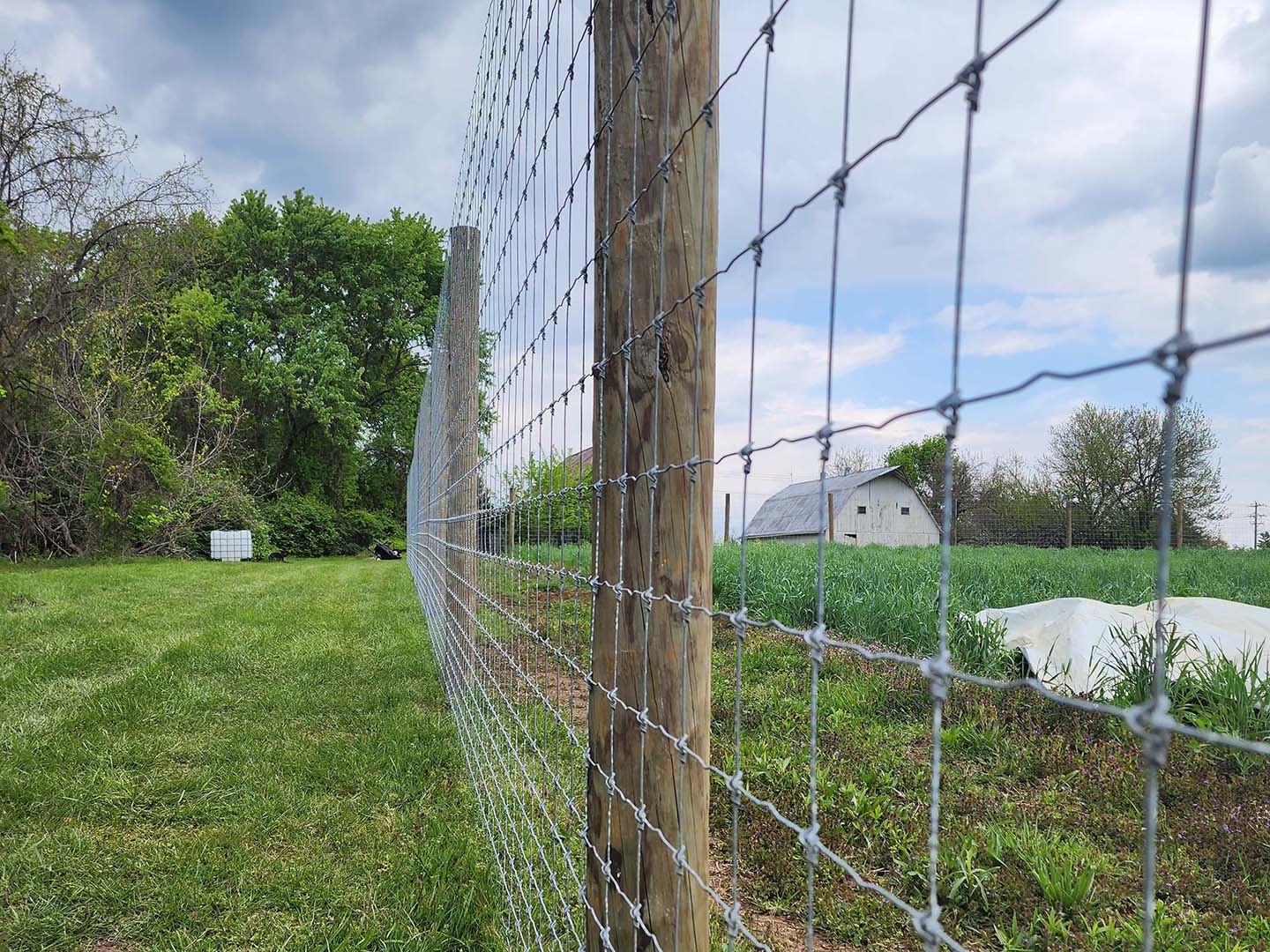When installing a fence on your agricultural property, determining the appropriate fence height is one of the most important decisions. The height of your fence directly impacts livestock protection, crop management, and keeping unwanted animals out, all while maintaining the safety and functionality of your operation.
At Double R Fence, we understand the unique requirements of agricultural fencing and are here to guide you through choosing the best fence height for your property. Our team of experts will consider all factors, including the type of livestock you’re managing, wildlife concerns, local regulations, and budget, to ensure you make the right decision for your needs.
Understanding Local Regulations and Codes
Before deciding on the height of your agricultural fence, it’s essential to check the local regulations and zoning codes specific to Central and Southern Indiana. Agricultural fence rules can vary significantly by county or municipality, so it’s crucial to follow any guidelines regarding height set by local authorities.
These regulations may dictate minimum or maximum fence heights for enclosures that house livestock or protect crops. You can avoid fines or the need for modifications to your installation by making sure to follow fence regulations.
To avoid complications, always consult with local authorities or your zoning board before proceeding. At Double R Fence, we are familiar with Bloomington, Indiana, codes and can help ensure your fence meets all local requirements.
Different Purposes, Different Heights
The purpose of your fence will have a significant impact on the height you choose. Whether you’re fencing in livestock, creating a barrier to prevent wildlife intrusion, or simply marking property lines with a Bloomington, Indiana, chain link fence, each type of agricultural fence serves a specific need. Here are some common agricultural fence purposes and their typical height requirements:
Livestock Fences
-
- Height: Typically 4 to 5 feet for smaller animals and 5 to 6 feet for larger animals like cattle or horses.
- Purpose: To safely contain livestock while preventing escape or injury. Livestock fences should be high enough to prevent animals from jumping or pushing through while still allowing for easy access and visibility for caretakers.
- Fence Type: For your livestock fence, we recommend our board fence, poly coat fence, or a traditional high tensile wire fence.
Pet Fences
-
- Height: The ideal height for pet fences ranges from 4 to 6 feet. Taller fences are recommended for dogs more likely to jump or climb.
- Purpose: The height of a pet fence helps ensure your pets’ safety and security. An appropriately sized fence prevents pets from escaping while keeping them safe from the wild.
- Fence Type: Chain link and wood fences are commonly chosen for dog enclosures on smaller properties. For those with working dogs or larger properties, a woven wire fence gives secure containment over expansive areas without compromising durability.
Crop Protection Fences
-
- Height: We recommend a 3- to 4-foot fence for crop protection.
- Purpose: Protect crops, gardens, and flower beds from being trampled by animals or unauthorized access. These fences provide a boundary to safeguard gardens while allowing enough air and sunlight for growth.
- Fence Type: Woven wire or electric mesh fences are excellent choices for crop protection. They effectively keep out larger animals like deer and livestock while allowing easy access to farming activities.
Perimeter Fences
-
- Height: The best height for a perimeter fence is usually 6 to 8 feet.
- Purpose: To mark property lines and keep unwanted visitors off your land. These fences are often used as a general boundary for your agricultural property.
- Fence Type: Depending on your desired look, high-tensile wire, chain link, and wood post fences are ideal for your perimeter.
Security Fences
-
- Height: Security fences should typically be about 6 to 8 feet or more.
- Purpose: To protect valuable farm equipment, storage areas, or facilities from theft or trespassing. Security fences should be tall and sturdy enough to deter unwanted intruders.
- Fence Type: We recommend our Bloomington, Indiana chain link fences for security fences. They are here to provide your property with the height and protection you want from your security fence.
Considering Cost
The height of your agricultural fence can directly affect the project’s overall cost. Taller fences require more materials, which will increase the cost of installation. Additionally, taller fences may require larger posts, stronger materials, and deeper footings to guarantee durability and stability, especially in the rural areas surrounding Bloomington, Indiana, with challenging weather conditions.
While you want to balance your fencing needs with your budget, it’s important not to compromise on the fence’s effectiveness. For instance, if you need a livestock fence but have a limited budget, you might opt for a 5-foot fence rather than a 6-foot one and use sturdy wire or mesh to keep animals contained.
Here at Double R Fence, we want to help make the cost of your fence affordable. We offer a free consultation service to discuss getting you the most bang for your buck!
Start Your Agricultural Fencing Project with Double R Fence
Choosing the right fence height for your agricultural property is crucial for achieving your desired outcome. At Double R Fence, we are here to assist you every step of the way. Our expert team can advise you on the best fence height and type for your agricultural needs to ensure you get a functional and cost-effective fence.
Whether you need a livestock fence, wildlife barrier, crop protection fence, or perimeter fence, we have the expertise and quality materials to meet your needs. Call us today at (812) 655-1965 or contact us online to schedule a consultation and take the first step towards securing and enhancing your agricultural property.



